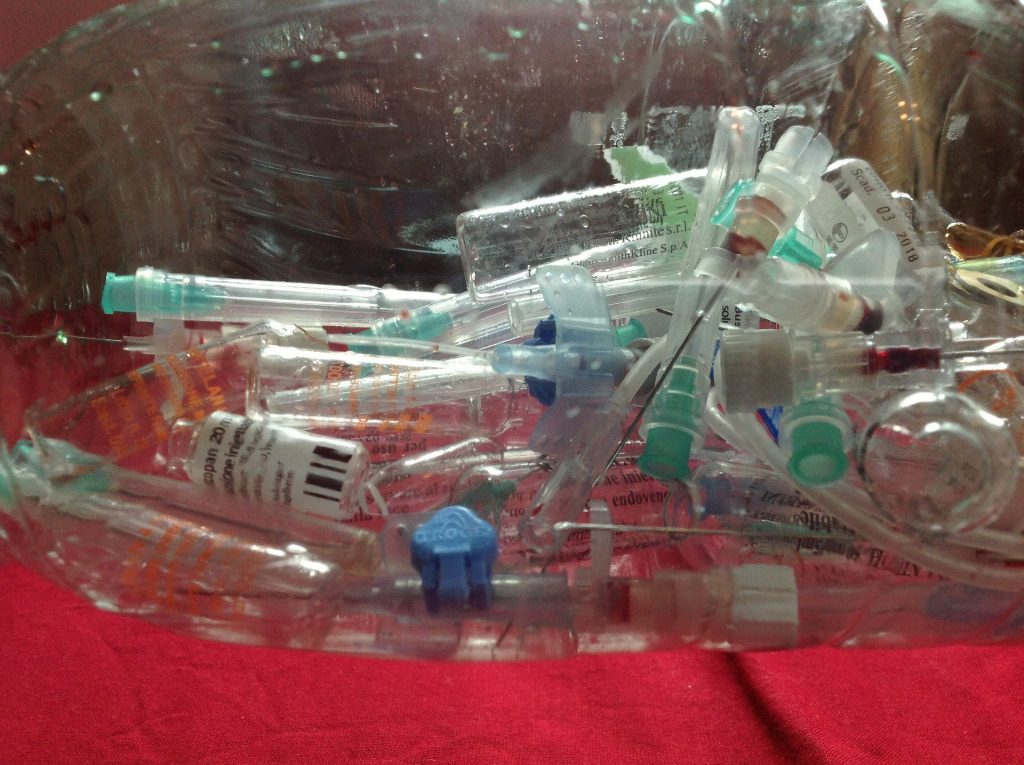OPERATIONS UPDATE: 1/27/26 BWS, Inc. is back to full operations. Please contact us with any questions or concerns about your scheduled pick up - (410) 437-6590 or customercare@bwaste.com
How are infectious wastes destroyed?
Infectious waste is destroyed through a process of decontaminating the waste, and then securely storing whatever is left over. Decontamination can be done through many methods, but the two most common are incineration and autoclaving. Once the infectious waste is decontaminated, the remains are stored in an approved storage shelter for safe keeping. How are infectious wastes treated? Infectious waste can be destroyed through various approved methods, but the two most common methods to decontaminate infectious waste are incineration and autoclaving.
Incineration
With incineration, the infectious waste is burned by direct flame in an incinerator. This method is the most common way to destroy infectious waste, but it isn't ideal. Destroying infectious waste with incineration releases emissions into our air which could pose environmental and public health risks. This is why many waste decontamination facilities are looking for, and moving to, more environmentally-sound methods.
Autoclaving
During autoclaving, steam is pumped into a pressurized chamber to decontaminate and practically destroy the infectious waste. Autoclaving doesn't fully destroy the waste, but it can cause it to lose upwards of 60% of its overall mass. While autoclaving is a safer way to fully decontaminate, the downside is it doesn't completely destroy waste. This means more of the waste must be permanently stored.
Where is infectious waste stored?
Once fully decontaminated, the remaining infectious waste must be stored for safe keeping. This is true regardless of the decontamination method. The facilities that store infectious waste keep the infectious waste remains secure in a safe container. This added level of security is there to prevent any animals or people from accessing it. For more information on the transportation and disposal of infectious waste, contact BWS inc. today. BWS is the largest, privately held transporter of medical waste in the Mid-Atlantic region. For more information, or if you need hazardous waste services, call us today at 800-660-6581 or get a FREE quote.
Ready to get started?
We offer a variety of competitively priced service options with no contracts or hidden fees. Request a free quote.
Our Dedication to Providing the Highest Quality Regulated Waste Services
is Shown in What Our Clients Say About Our Work
We provide an outstanding value and service to our regulated waste customers and pride ourselves over the last 50 years on our 100% customer satisfaction with 99% customer retention ratio.
Paul R Miller, D.D.S. and Team
ZytoGen Patient Services
Akbar Masood, D.D.S.
Chris Donaldson
Dharani Jasthi
Tomicka Jackson-George, D.M.D.
Louis Sachs, D.D.S.
Kate Blair English
Dave Ryan
Kerry Owens, Avalon Plastic Surgery
Jamie Fleming, National Spine & Pain Centers
Keith Roberts, Biomatrix Specialty Pharmacy
Mireia Pedragosa Marin, Synergy Research
Rebecca Crouse, Randolph Macon Academy
Melissa C, Patriot Chiropractic
Dr. Rosario Ignacio
Dr. Thomas Lutz, Odenton Family Dentistry
Dr. Louis Sachs, DDS
Eric B.
Brenda Shah
Stay connected - Be the first to know!
Get BWS news and promotions straight to your inbox
Don't worry. We won't sell your information!





